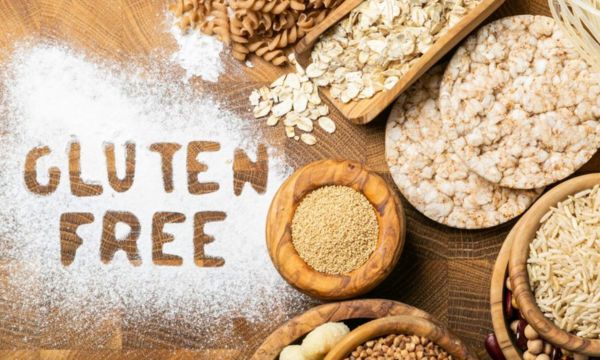The Ketogenic Diet: Benefits and Risks
In recent years, the ketogenic diet, also known as the ‘ketogenic diet’, has become very famous as a way to lose weight and improve health. This high-fat, low-carb diet is designed to put the body into a state called ketosis, where it burns fat instead of carbohydrates for energy. Some people have seen good results with the ketogenic diet, but it has its own pros and cons that should be carefully considered. In this in-depth article, we explore the science behind the ketogenic diet, as well as its potential benefits and risks.
Ad
How to Understand Ketosis?
The main idea behind the ketogenic diet is to eat fewer carbohydrates and more fats. When there are insufficient carbohydrates, the body gets most of its energy from fat stores. This metabolic state is called ketosis and causes the body to produce fuel molecules called ketones.
Pros and Cons of the Ketogenic Diet:
1. Lose Weight
The ketogenic diet is often used by people who want to lose weight. The high-fat, low-carb nature of the diet helps reduce hunger, making it easy to eat less. Ketosis also ensures that you burn more fat, which in turn helps you lose weight further.
2. Better Blood Sugar Control
People with type 2 diabetes or prediabetes may find that a ketogenic diet can help them manage their disease by lowering blood sugar levels. Reducing carbohydrate intake allows insulin to work better.
3. Clearer Mind
Some people who follow the ketogenic diet say they have a clearer mind and can think better. Ketones are known to be a constant source of energy for the brain, allowing people to concentrate and perform better mentally.
4. High HDL Cholesterol Levels
High-density lipoprotein (HDL) cholesterol, also known as “good” cholesterol, increases when you follow a ketogenic diet. This is good for heart health as it reduces the risk of heart disease.
5. Possible Benefits for Epilepsy Patients
The ketogenic diet was originally proposed as a treatment for seizures when medications were inadequate. Research has shown that this can lead to fewer and less severe seizures in some people with epilepsy.
Risks and Issues to Consider:
While the ketogenic diet may have some benefits, it’s important to understand its dangers and consider things:
1. Inadequate Nutrition
Because this plan doesn’t allow you to eat a lot of high-carb foods, such as fruits and whole grains, you may not get enough nutrients. With such a limited diet, it can be difficult to get enough vitamins, minerals and fiber.
2. Keto Flu
Some people suffer from what’s called the “keto flu” when they enter ketosis. Some of them are fatigue, illness, dizziness and headache. Usually these symptoms are short-lived, but they can be painful.
3. Intestinal Problems
Some people with stomach problems, such as constipation or diarrhea, may experience stomach problems if they eat more fat. To alleviate these problems, it is important to drink enough water and eat enough fiber.
4. Risk of Cardiovascular Disease
Although the ketogenic diet can increase HDL cholesterol levels, it can also increase LDL cholesterol levels, which is often called “bad” cholesterol. If your LDL cholesterol is high, it can make you more susceptible to heart disease.
5. Possible Muscle Loss
In ketosis, the body can break down muscle tissue for energy. This can lead to muscle loss, especially if you don’t get enough protein.
Who should Follow the Ketogenic Diet and Who should Not?
Not everyone does well on a ketogenic diet. It can help people who want to lose weight, control blood sugar levels, or stop seizures (with medical care). But it’s not a good idea for women who are pregnant or breastfeeding, people with certain metabolic diseases, or people who have suffered from an eating disorder in the past.
How to Make the Ketogenic Diet Safe and Effective:
If you’re considering trying the ketogenic diet, here are some tips to keep you safe and get the most out of it:
- Talk to Your Doctor or Nurse: Before starting a ketogenic diet, check with your doctor or registered dietitian to make sure it meets your health goals and needs.
- Check the Nutritional Content: Pay close attention to the nutrients you eat so that you don’t get too little. Consider taking vitamins if necessary.
- Drinking Water: It’s important to drink enough water, especially to combat keto flu symptoms and keep your kidneys functioning properly.
- Include Healthy Fats: Focus on eating healthy fats such as eggs, olive oil and nuts, and avoiding saturated fats and trans fats whenever possible.
- The Key is Moderation: Although the diet is high in fat, it is still important to eat a balanced diet. Even if you follow a ketogenic diet, you can gain weight if you eat too much.
Conclusion:
The ketogenic diet can help you lose weight, better control your blood sugar, think more clearly, and more. But there are some risks and issues you should consider carefully. Before starting a ketogenic diet, it’s important to weigh the potential benefits against the potential risks and consult a doctor to ensure it meets your health goals and needs. As with any diet, the key to success is making smart choices, eating in moderation and focusing on your health.
FAQs:
1. What is the ketogenic diet and how does it work?
The ketogenic diet is a high-fat, low-carb diet designed to induce a state of ketosis in the body, primarily burning fat instead of carbohydrates for energy. This metabolic state is achieved by drastically reducing carbohydrate intake.
2. Is the ketogenic diet suitable for everyone?
The ketogenic diet may not be suitable for everyone. It’s important to talk to a healthcare provider before starting, especially if you have certain health conditions (such as metabolic disorders) or are pregnant or breastfeeding.
3. What are the potential benefits of a ketogenic diet?
The ketogenic diet has shown potential benefits in losing weight, improving blood sugar control, improving mental clarity, increasing HDL cholesterol levels and even controlling epilepsy, especially when medications are ineffective.
4. What are the risks of the ketogenic diet?
Risks of the ketogenic diet include nutritional deficiencies, possible digestive problems, the possibility of elevated LDL cholesterol levels, and the risk of muscle loss due to the breakdown of muscle tissue for energy in ketosis.
5. How to follow the ketogenic diet safely and effectively?
Safely following the ketogenic diet includes consulting a healthcare provider or nutritionist, monitoring nutrient intake, staying hydrated (including healthy fats), practicing moderation, and ensuring regular health checks to track progress and address any problems.
 Living Gluten-Free: A Comprehensive Guide
Living Gluten-Free: A Comprehensive Guide
Gluten-free living has gone from being the only option for a small group of people to being […]
More Understanding Daily Nutritional Needs
Understanding Daily Nutritional Needs
With all the nutritional recommendations out there, it can be difficult to figure out what to eat […]
More Going Vegan: What You Need to Know
Going Vegan: What You Need to Know
Veganism is not just a choice about what to eat; It’s also a commitment to a mindset […]
More